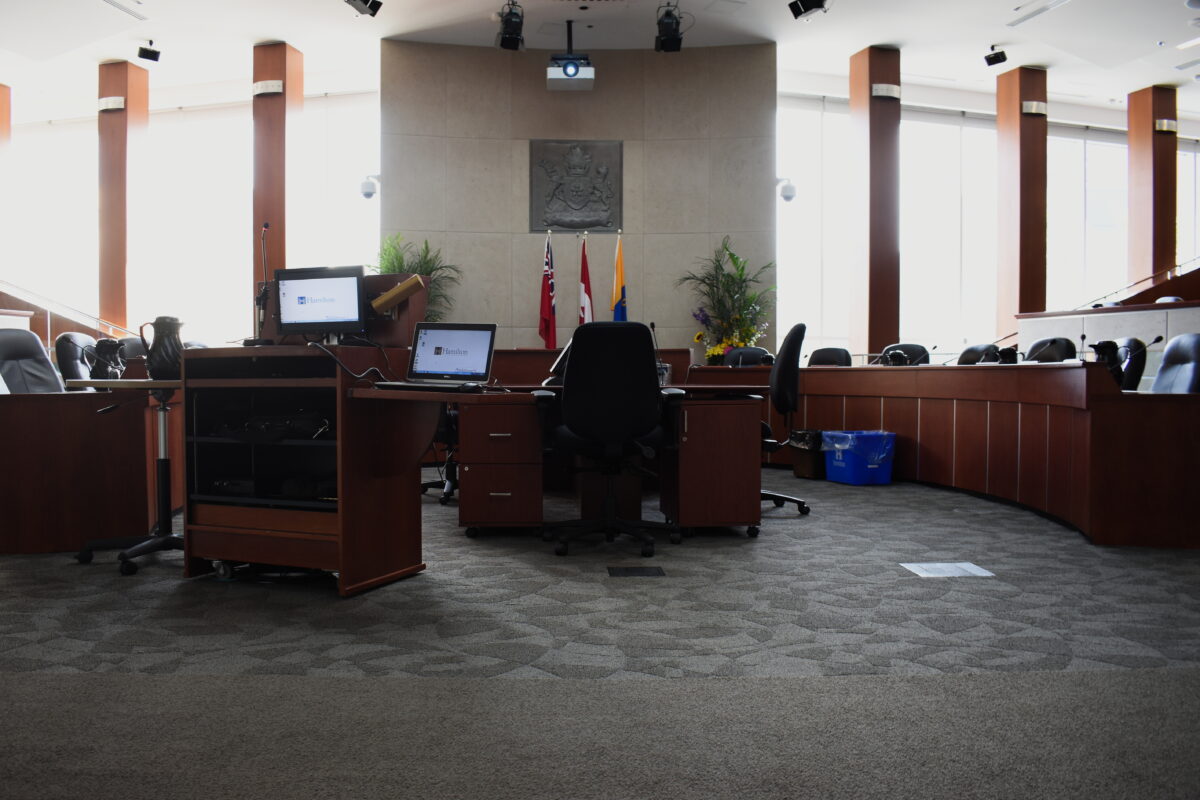Hamilton City Council approved a 2.6% increase to the City’s operating budget for 2021.
The budget passed 13-1 at the end of today’s final budget meeting.
The final average residential property tax increase for 2021 is 2.1%
The increased in city taxes is offset by a decrease in provincial education property taxes and property tax assessment growth.
“The proposed Municipal Residential tax increase of 2.6%, when combined with the 2021 impact for Education of (0.3%) and the impact of levy restrictions of 0.1% and the assessment growth impact of (0.2%), would result in an average total residential tax increase of 2.1%” reads the City’s final budget report.
Councillor Lloyd Ferguson opposed the budget, engaging in his annual “Frugal Fergie” routine. Ferguson ensures new spending he supports is included in the early stages of the budget, and pivots to opposing other spending in the later stages of the budget.
Councillors Esther Pauls and Terry Whitehead were absent.
Federal COVID Funding Gives City $49-million Surplus for 2020
Hamilton’s expected 2020 budget surplus is now $48,885,183.
The surplus results from $170-million in funding commitments from the Federal and Provincial governments in COVID support.
At present, the City has spent $59-million of the committed funds, with $111-million set to expire at the end of the month.
General Manager of Finance and Corporate Services Mike Zegarac says the City needs those committed funds extended beyond March 31st.
Zegarac states the City incurred $37-million in costs, and lost $53-million in revenue, due to COVID thus far.
Earlier this week, the Province announced an extension of public transit funding support beyond March 31st. This announcement included new funding which will ensure the HSR can continue to cover its COVID costs until at least early 2022 and likely into Fall 2022.
No announcement on the other funding has yet been made.
Debate Regarding Using the 2020 Surplus to Decrease 2021 Taxes
Councillors asked if the 2020 surplus could be used to offset the 2021 tax increase.
Councillors sought to have the tax increase lowered to 1.9%, which they believe is more palatable.
GM Zegarac explained that a one-time offset would result in a large tax increase in 2022 as the costs of operations will carry though into 2022. He noted the City usually puts surplus funds into a tax stabilization reserve account which is drawn upon to cover unexpected expenses during the fiscal year.
Councillors use the tax stabilization fund for legal expenses, fines imposed upon the City, and “pilot projects” between budgets.
City Increase Inline with Inflation
Hamilton’s budget costs for 2021 are mostly driven by inflation, with few new programs or services.
Statistics Canada states the building construction price index for non-residential in 2020 was 2.5%.
2022 Outlook
The City’s updated 2022 operating projection shows an increase of 4.4% in costs. This is offset by assessment growth and education tax decreases for a projected tax increase of 3.9%.
The City states that if the Provincial and Federal governments end COVID funding too early, the City will have to increase taxes by 10%.
2022 is a municipal election year, meaning that Council is likely to re-categorize initiatives as “pilot projects” to decrease the tax increase for the year. Thus, the 3.9% project as a starting point will likely be drastically reduced in the coming year.

